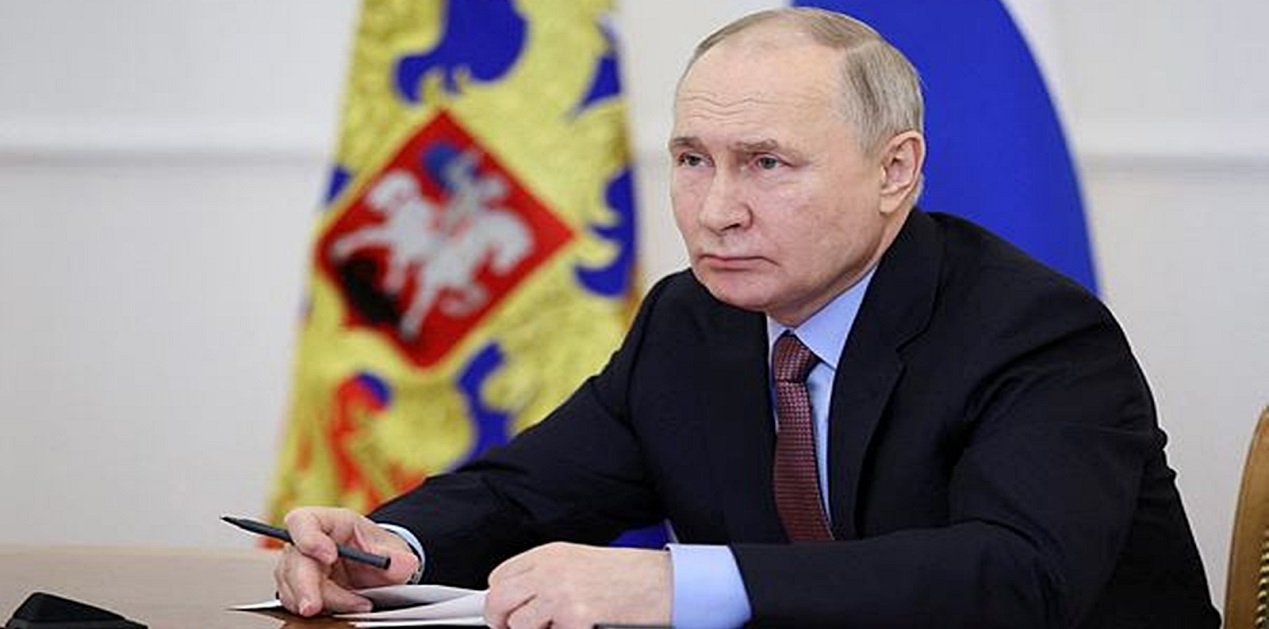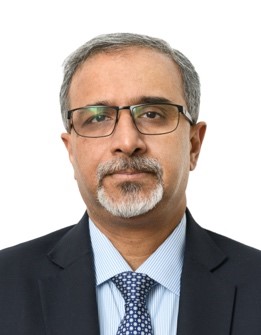With the West locked into a semi-permanent conflict with Russia, and the fraying deterrence equations between the big powers, the consequent disequilibrium on the Eurasian continent is a matter of deep concern. It works primarily to China’s advantage.
Earlier this month, Russian forces captured Avdiivka, a key city on the Ukrainian defensive line in the Donetsk region. With the stalemated Russia-Ukraine conflict now entering its third year, this breakthrough comes against the background of a steady turn in the tide of the war in Russia’s favour. It’s too early to predict a decisive outcome, but sometimes change comes gradually and then all at once.
A war of manoeuvre in its first year, it’s now a war of attrition (Also see ‘The Putin pursuit’, IE, February 24, 2023, and ‘Changing battlefields’, IE, July 10, 2023). Exhaustion of the opponent’s political will, economic strength and military capacity is its main objective. This works to Russia’s advantage, being the larger country with superior resources. A patient Russian leadership and its General Staff have crafted a military strategy that is grinding down Ukrainian capabilities. The Russian military has adapted its battlefield tactics; an expanded defence industry has provided the necessary tools to make it a success.
Wars are messy and prolonged wars, especially so. Russia’s military advantage is not irreversible, yet. Ukraine’s military potential remains substantial. More fighting units are dug at the next line of defence — around Kramatorsk and on the route towards Zaporizhzhia. The Russian Black Sea fleet has stayed put in port to avoid unmanned marine vehicle attacks. Ukraine continues to get substantial NATO support; more may be coming, not only in the form of long-range missiles but also in terms of air defence and electronic warfare, areas in which Russia is slowly gaining the upper hand. This conflict has valuable lessons to offer. These must not be ignored.
As compared to the slow-moving battlefields, the international context has undergone rapid changes. Critically dependent on external support, Ukraine’s position has weakened progressively. Ukraine is learning the hard way that in conflicts involving the big powers, the risk of partners being treated as proxies is a real one. While the EU voted in a $54 billion multi-year assistance package, a $60 billion assistance package for Ukraine has been held up in the US Congress. The debate has laid bare deep domestic divisions on America’s international priorities. Ukraine enjoyed an uncontested top spot in 2022; now it shares the space with Israel, Gaza, Taiwan and the securing of the US’s southern border. There is a growing sentiment in Washington that Europe should grow up and learn to stand on its two feet.
Stalemate on the battlefield, military leadership changes, and a more pervasive Ukraine fatigue have added to the sense of gloom in Western capitals. However, the public rhetoric on war aims has remained consistently shrill — vacation of Ukrainian territory, reparations, and accountability for alleged war crimes. Though it is not winning the war, Ukraine’s war aims are based on the expectation that it will do so. Whether this is a well-grounded premise or an illusion, only time will tell. Russia’s Avdiivka advantage perhaps points to the latter.
Sensing the shifting winds in western capitals, especially in Washington, President Putin timed his widely watched interview with the American journalist Tucker Carlson to once again set out Russia’s historic as well as current perspectives on the Ukraine conflict. Russian war aims may not be open-ended but a peace settlement on Ukraine will not be limited to Ukraine. Putin’s gambit is not for now, or for this year, but for the next US administration. Putin is playing the long game — his eventual goal is a new modus vivendi with the US, for which a decisive breaking of Ukrainian resistance is seen as a prerequisite.
Sharp gaps in NATO defence stockpiles and industrial capacities have come to the fore which will take time to fill. The defence spending of NATO states remains uneven. For Ukraine, this provides no relief as its requirements are more immediate. As a sop, the UK, Germany and France have concluded agreements committing security support in case of future Russian aggression — not dissimilar to medical insurance packages that don’t apply to current maladies.
Though this began as a European conflict, it has not remained in Europe. Global energy, food and financial linkages have been impacted. In retaliation for support for Ukraine, Russia has undercut French influence in the Sahel region of Africa. Russia-North Korea relations have rebounded almost entirely in response to the Ukraine conflict. North Korea is now an open and aggressive nuclear power. Overshadowed by other more immediate crises in the region, Iran’s proto-nuclear capability is left unaddressed. With Russia de-ratifying the CTBT, and with traditional arms control almost dead, it will not be long before the malaise infects the broader non-proliferation regime. US talks with China on arms control are but small raindrops in an otherwise parched sky. A new dark age of unbridled arms competition looms on the horizon.
With the West locked into a semi-permanent conflict with Russia, and the fraying deterrence equations between the big powers, the consequent disequilibrium on the Eurasian continent is a matter of deep concern. It works primarily to China’s advantage as it benefits from the confusion at the heart of America’s global strategy on priorities and sequencing in the allocation of resources. A prolonged Russia-Ukraine conflict is not in India’s interests — it weakens Russia, undercuts European security, and immeasurably complicates US global rebalancing.
Partial battlefield gains can only provide partial gains at the negotiating table. This applies to Russia as it does to the US and its European allies who should pull back from the brink and find a way of reconstructing European security that includes Russia, for there can be no lasting settlement without Russia. Trans-Atlantic security cannot be built on the ashes of global insecurity. To get out of this awful mess, if competence on matters of grand strategy is asking for too much, then common sense should do the job.
The writer is a former ambassador to Russia










Post new comment